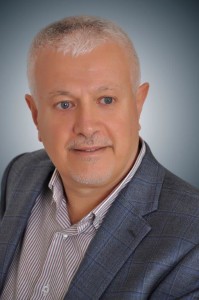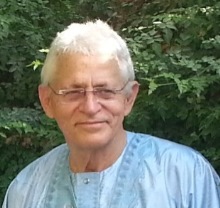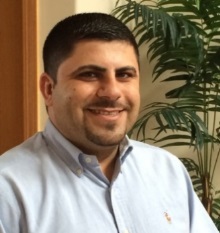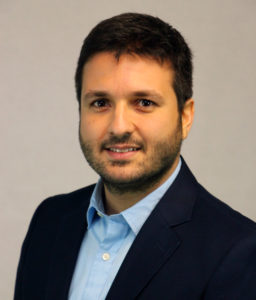 |
Professor Rabi H. Mohtar (Google Scholar) (Research Gate) Professor Mohtar is an Endowed Professor, Texas Engineering Experiment Stations (TEES), Texas A&M University, Departments of Civil and Biological/Agricultural Engineering. Mohtar’s research addresses global resource challenges: developing the Water-Energy-Food Nexus framework linking science to policy, characterizing soil-water medium using thermodynamic modeling, non-traditional water applications for sustainable integrated water management. He pioneered the development of a conceptual and modeling framework for the Water–Energy-Food (WEF) Nexus in an effort to better understand the interrelationships and explore their implications. He uses a quantitative framework to assess sustainable resource allocation tradeoffs, aiming to provide effective tools to empower dialogue between policy makers and scientists. Mohtar has developed programs for the evaluation of environmental impact of land use and water management; developed innovative soil and groundwater remediation technologies, and applied numerical methods to biological engineering system, characterizing the soil water medium at the pedon, field, and watershed scales. He has designed and evaluated international sustainable water management programs addressing population growth and water shortage conditions in arid climates. His research has resulted in improved methods for environmental and natural resources engineering, many of which have been adopted by other professionals and agencies internationally. Mohtar has published over 200 peer-reviewed articles, refereed conference proceedings, books and book chapters. He is a distinguished alumnus of American University of Beirut (2014), recipient of the Ven Te Chow memorial award, International Water Resources association (2015) and Kishida International Award (2010), Mohtar served World Economic Forum Global Agenda Councils on Water Security and on Climate Change (2009-2014), is a governor of World Water Council (2012-present). |
 |
Professor Erik F. Braudeau (Research Gate) Professor Braudeau, Honorary Scientist at Institut de Recherche pour le Développement (IRD), Bondy, France, is an adjunct faculty at Texas A&M Department of Biological and Agricultural Engineering. Braudeau holds a Ph.D. (Faculté d’Orsay, Orsay-France, 1975) in organic chemistry. Erik has more than 25 years’ experience in soil mapping, soil physical characterization and modeling at the ORSTOM/IRD (French Research Institute for the Development). Since 1979, Dr. Braudeau has held research positions in Africa (Congo, Senegal, Tunisia) and Martinique (2003-2006). He lead the laboratory of Hydrostructural Pedology in the IRD research center of lle de France (2008-2011), at UMR BIOEMCO, where he developed methodologies for soil characterization, mapping, and modeling its hydrostructural properties. Until his official retirement in 2014, Erik served as the principal investigator of the integrative environmental modeling group at Qatar Environment and Energy Research Institute (QEERI)-Qatar Foundation-Qatar (2011- 2014). |
 |
Professor Amjad Assi (Google Scholar) Professor Assi is a Research Assistant Professor at the Department of Biological and Agricultural Engineering, Texas A&M University. Assi’s work with the multi-scale hydrology group at Purdue University and as a graduate research associate with Qatar Environment and Energy Research Institute (QEERI), Qatar Foundation, was instrumental in providing the heretofore missing conceptual linkage between the soil organization and its hydraulic functionality by identifying a set of physical parameters each of which quantifies specific physical and structural properties of soil medium. Dr. Assi helped establish the soil hydro-structural characterization laboratory at Texas A&M University. Dr. Assi was the 2013 outstanding graduate student of Purdue’s Agricultural and Biological Engineering Department. His work directly addresses the twin critical issues of food security and water security: primary global challenges, most profound in arid regions, where local food production must be managed under particularly harsh environmental conditions. His primary research interests with the NEXUS research group is to develop a methodology for better accounting of Green Water, hydro-structural characterization of the soil-water medium at the pedon, field and watershed scales, and the impact of water reuse on the hydro-structural characteristics of the soil medium. He holds a B.S. in Civil Engineering and M.S. in Hydrology and Water Resources Engineering from Birzeit University, Palestine. His Ph.D. is from Purdue University (2014). While in Palestine, Assi was an engineer with the Palestinian Hydrology Group, Ramallah, where his work addressed watershed management and modeling, environmental assessment of pollution sources on water resources, vulnerability and risk management and mapping, conventional water sources rehabilitation and development, groundwater artificial recharge, and hydrological monitoring. |
 |
Bassel Daher, (Google Scholar) is a Research Associate at Texas A&M University’s Water-Energy-Food Nexus Research Group (since 2014) and Coordinator at the Water-Energy-Food Nexus Initiative (since 2016). Daher’s work focuses on policy-oriented research in natural resource management, environmental sustainability, and resource security. He is particularly interested in developing Water-Energy-Food Nexus solutions that respond to biophysical, socioeconomic, governance, and financing constraints, at multiple scales, and in the context of the Sustainable Development Goals. Daher has expertise in water-energy-food nexus analytics and the development of resource allocation assessment tools. His focus lies in developing analytics to catalyze dialogue, and improve cooperation, between cross-sectoral stakeholders. He was selected as one of 8 young water professionals globally to serve on the Young Scientific Committee of the 2016 Stockholm World Water Week. Daher has contributed to multiple chapters of the UN Global Sustainable Development Report, co-authored a report on “Renewable Energy and the Water, Energy, and Food Nexus” for the International Renewable Energy Agency (IRENA), and has contributed to or authored more than 15 journal articles, book chapters, and policy briefs relating to the interconnected water-energy-food securities and nexus assessment tools, including with Chatham House and Water International. He was a Research Associate (2012-2014) with the Qatar Environment and Energy Research Institute, Doha. Daher is the 2017 recipient of the Montgomery Award in recognition of major contributions to the academic opportunities and quality of life of his fellow graduate students at Texas A&M University; he serves as Vice President of the Texas Chapter of the American Water Works Association. Daher holds a B.Sc. in Civil and Environmental Engineering from the American University of Beirut (2010), and an MSE (2012) from Purdue University, Biological and Agricultural Engineering-Multi-Scale Hydrology Group. He is currently pursuing his PhD in Water Management and Hydrologic Sciences at Texas A&M (2018).
|





 WEF Nexus Research Group
WEF Nexus Research Group